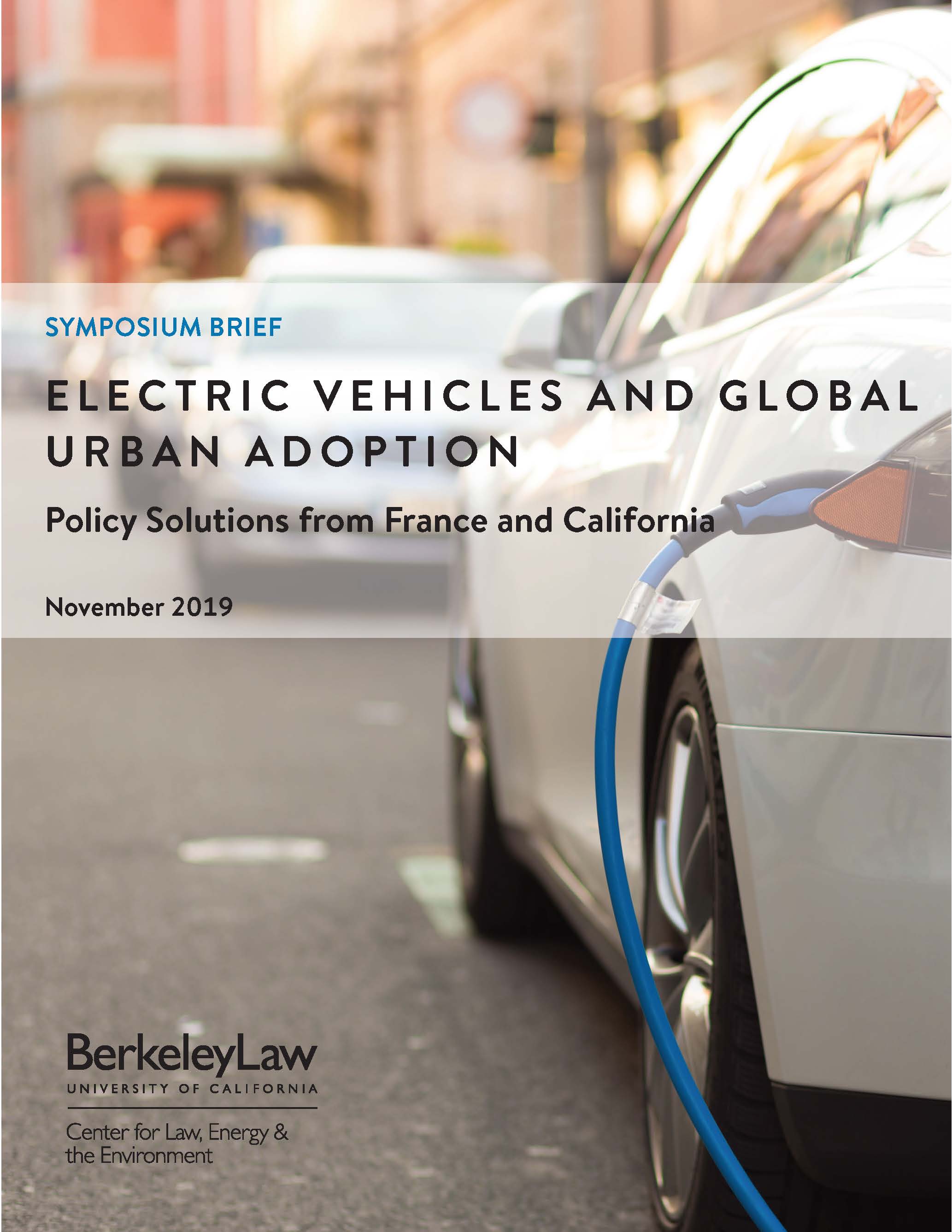Electric Vehicles and Global Urban Adoption
A collaboration among the Center for Law, Energy & the Environment (CLEE), CentraleSupélec, and Florence School of Regulation (FSR)
California and France have taken leading steps in supporting the transition to electric vehicles (EVs), but each has substantial progress ahead to reach full adoption. What can these jurisdictions learn from each other’s successes and challenges to make EVs convenient and accessible to urban residents?
To explore these questions, speakers at our June 2019 international conference at UC Berkeley on electric vehicles and global urban adoption, co-sponsored by CentraleSupélec and Florence School of Regulation (FSR) in France, described lessons learned for electric vehicle deployment in France and California.
Based on the discussion, UC Berkeley Law’s Center for Law, Energy and the Environment (CLEE) released the symposium brief: Electric Vehicles and Global Urban Adoption: Policy Solutions from France and California.
As summarized in the report, key challenges include:
- Lack of access to affordable, convenient private electric vehicles;
- Complexity and cost of installing charging in urban settings and existing multifamily buildings;
- Declining federal incentives and insufficient vehicle demand;
- Electricity rate design decreases the financial viability of charging stations;
- Difficulty of adopting optimal charging practices that could benefit users and electric utilities;
- Difficulty of adopting optimal charging practices that could benefit users and electric utilities; and
- Need for grid infrastructure upgrades to avoid high costs on first-movers.
Priority solutions include:
- National and state governments could require owners of existing multifamily buildings to install charging stations;
- National and state governments could assist transportation network companies (TNCs) like Uber and Lyft in encouraging electric vehicle adoption among their drivers, through support for the deployment of fast-charging hubs, driver education programs, and new pilot projects; and
- Electric utilities and regulators could develop new rate designs to incentivize charging while optimizing grid efficiency.
Because passenger vehicles are the single largest source of greenhouse gas emissions worldwide and produce significant amounts of harmful air pollution from NOx, particulate matter, and other pollutants, jurisdictions around the world will hopefully benefit from these findings to rapidly accelerate the adoption of EVs. While consumers are increasingly switching to EVs, policy makers will need to design solutions to boost deployment at the local level, particularly for urban residents who may lack access to charging.
Review the June 2019 conference agenda and speakers below.
Contact Ethan Elkind for more information.
You can find MCLE written materials and conference presentations here.

